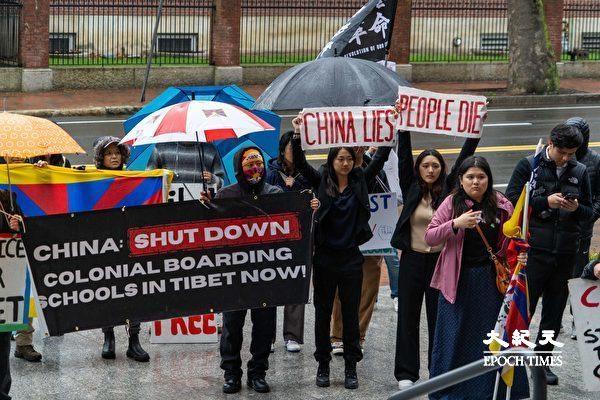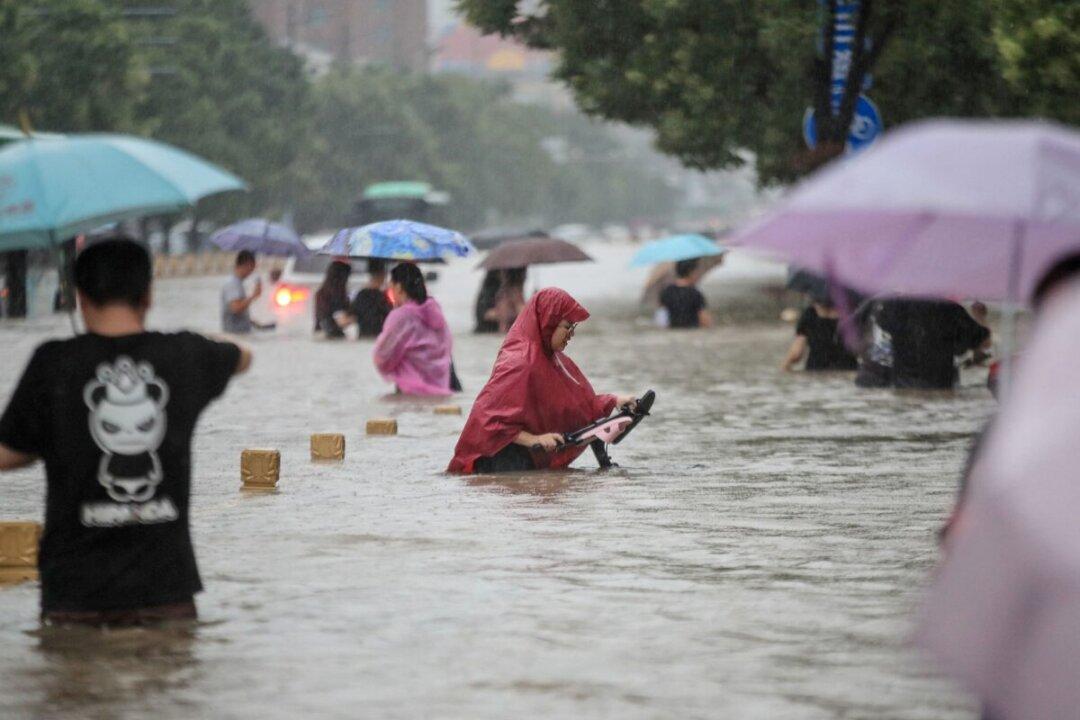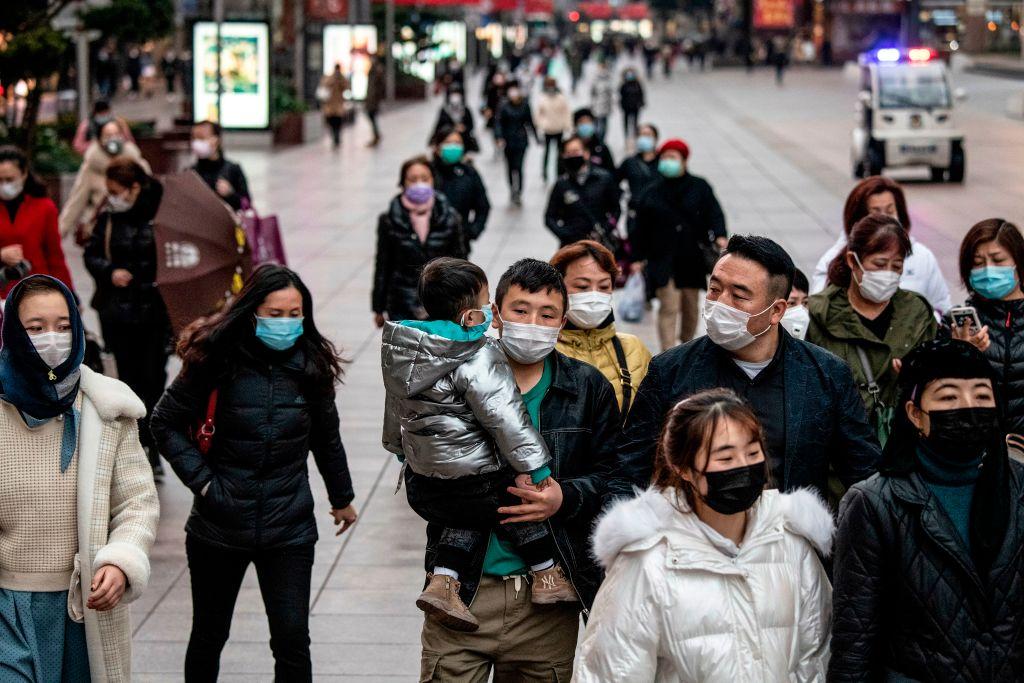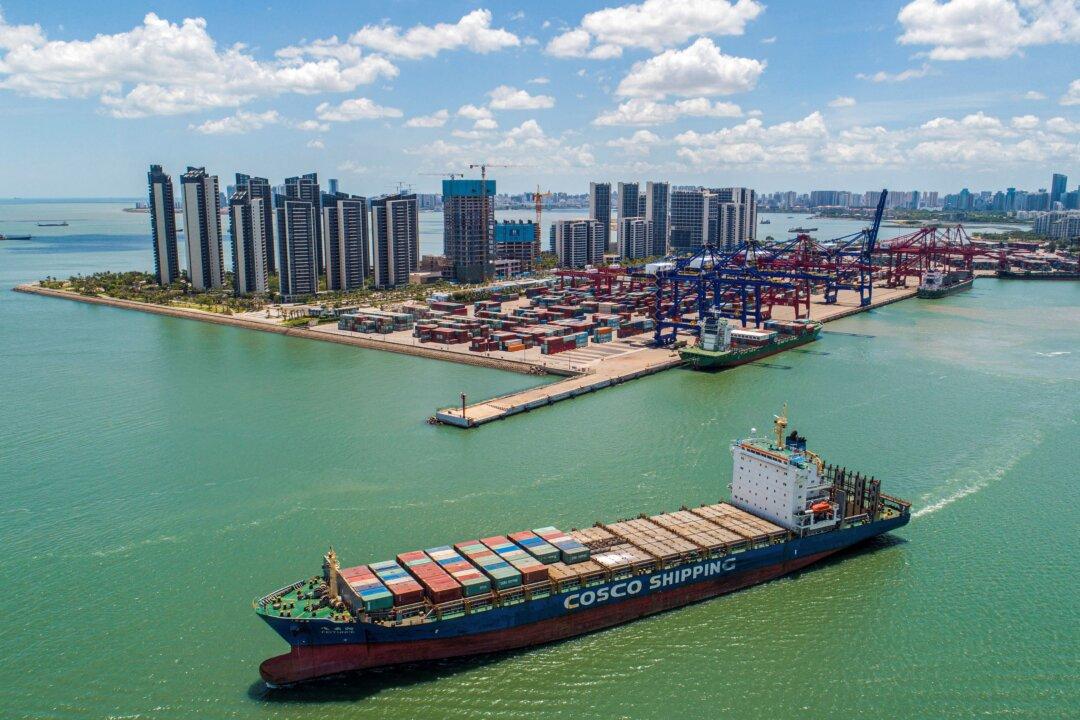More Chinese students held “anti-Japanese” protests in several cities—all far away from Beijing—last weekend, after tens of thousands had taken to the streets on the previous weekend. And while these protest marches were not as large, the focus at some of them has begun to shift from the disputed Diaoyu Islands toward China’s domestic problems.
After the large-scale protests during the middle of October, Hong Kong’s Apple Daily said that these were not spontaneous outpourings of common sentiments, but instead were organized by government-supported student organizations. Some predicted that this politically calculated move could get out of control and turn against the regime. In some areas this is exactly what has happened, and the regime is now doing everything it can, short of using violence, to prevent further protests.
Some small-scale anti-Japanese protests broke out in Lanzhou (Gansu Province) and Baoji (Shaanxi Province) on Oct. 24. However in the Baoji protest, some people were holding banners with slogans protesting high housing prices and corruption. Several hundred people, most of them young, participated in the Lanzhou protest. A small student gathering also took place in Nanjing (Jiangsu Province), the BBC said.
Japan’s Asahi TV showed footage from the Baoji protest: banners that read “Protest High Housing Costs” and “Brother Ying-jeou Mainland China Welcomes You,” referring to Taiwan’s president Ma Ying-jeou. The report also said that local schools had been closed.
According to a report by Japanese JiJiPress, another protest of around a thousand people took place on Oct. 23 in southwest China’s Deyang City, and some of the participants clashed with police. Reporters from Japan and a few other media were also detained for “safety reasons.” Official Chinese media did not directly report on the matter.
School Lockdowns
After the large scale student protests on Oct. 17, 18, and 19, authorities in Baoji and other cities extended classes at schools through the weekend and guarded campus gates to prevent large numbers of students from leaving, and to prevent larger protests, the Associated Press reported. All Internet posts related to the protests have also been quickly deleted.
A student from Xi’an Jiaotong University who wished to remain anonymous, confirmed that students leaving campus grounds need to show guards special purpose leave slips signed by a counselor, head teacher, or department authorities. “[School lockdown] does exist. Protests happened in Xi’an, so many schools are under lockdown,” he said. “It’s most serious in places like Xi’an and Zhengzhou.”
Japan’s Kyodo News reported that over a thousand people in Deyang (Sichuan Province) also took to the streets on Oct. 23, and that authorities called it illegal as there was no permit issued.
On Sunday afternoon, Oct. 24, People’s Daily online, the regime’s official mouthpiece, published a signed commentary that called on the students to “express their patriotism rationally and in accordance with the law.” The article repeated the Chinese Foreign Ministry spokesman’s recent speech about “maintaining reform, development, and stability.”
Secret Agreements
The uninhabited islands chain at the center of a bitter territorial dispute is called Diaoyu in Chinese, and Senkaku in Japanese.
Japanese magazine Aera, owned by the country’s second largest newspaper Asahi Shimbun, reported on Oct. 18 that China and Japan had signed a secret treaty while Junichiro Koizumi was prime minister. The treaty states that China will not allow any Diaoyu activists to sail to the area, and Japan will not detain any Chinese unless it develops into a case of grave concern.
The Chinese Foreign Ministry kept silent for two days and only denied the existence of the treaty on the third day. The regime, however, cannot deny the fact that it has not let any ship go out to defend the Diaoyu Islands for a long time.
In the past several years Beijing did ban anti-Japanese boats from sailing to the islands, but brought out its sovereignty claims periodically—often on high profile occasions.
Cao Changqing, a political commentator, said in an article that the regime has signed two important documents with Japan: the 1972 Sino-Japan Joint Statement and the 1978 Sino-Japan Treaty of Peace and Friendship. Neither mentioned territorial dispute or the Diaoyu Islands. The regime’s leaders, from Mao Zedong, Deng Xiaoping, to Jiang Zemin and Hu Jintao, have all given up on the cause.
Protesters Shifting Focus
Analysts say the Chinese regime is very embarrassed by this recent media leak, and fears that continuation of the anti-Japanese protests may turn into anti-government protests.
Former Chinese diplomat and defector Chen Yonglin believes it is possible that such a secret agreement does exist even though Beijing denies it. “The Chinese regime fears the student protests might shift to target it [the regime].”
Chen told The Epoch Times there have been instances where patriotic student parades have ended up affecting the regime.
“They could transform into a democratic movement; the students also have their own independent thoughts,” Chen said. “In mainland China, if the protest is controlled by the Chinese government, it can be allowed to continue. However, when the students no longer follow orders and start to protest out of their own will, and when public opinion can no longer be controlled, the government will start suppression.”
Zhu Yufu, a founding member of the China Democracy Party said in an interview with The Epoch Times that the Chinese regime is scared, and “every little thing puts it in a panic.”
Zhu pointed out that the 1989 Tiananmen Square student movement began with students marching to honor deceased regime leader Hu Yaobang who wanted to fight corruption through political reform.
“The corruption of that time was not on the same level as today’s corruption. Now there are more social problems, more unemployed people. They [the Communist Party leaders] do not have the guts to take measures, or courage to make changes. Instead, they desperately try to use the need for social stability as an excuse to override everything else, and to solidify its ruling position. They actually have a doomsday mentality.”



